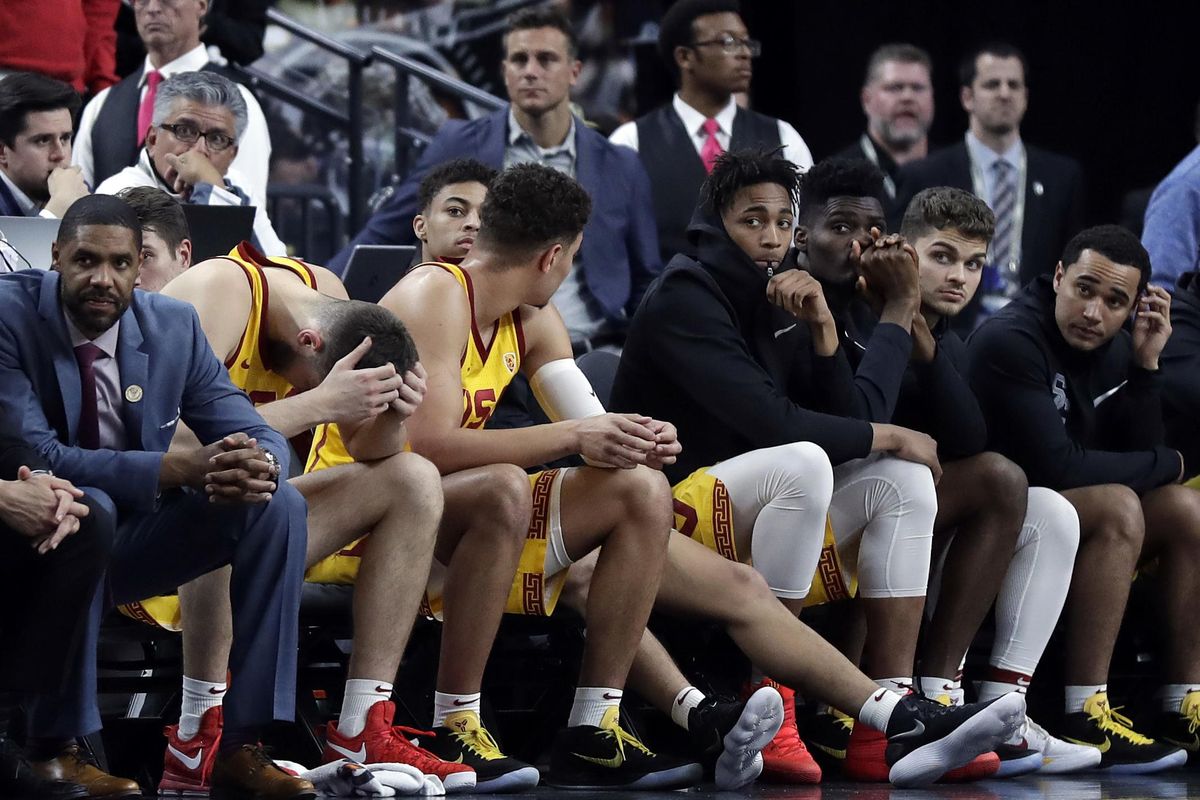Greg Cote: NCAA needs March Madness to help us forget taint of corruption for awhile

Save the season, March Madness. Fill our minds with basketball and brackets and Cinderellas. Spare us from the scudding cloud of FBI investigations and corruption and scandal for a few weeks.
A sport has rarely if ever needed a wonderful postseason, a big crescendo to save its season, more than men’s college basketball does right now.
A thrilling March Madness can’t make any of the taint go away, but it can remind us why we love this sport, and why it is worth cleaning, worth saving.
That’s why this Selection Sunday felt different. It felt like a second chance.
So the 68-team men’s NCAA Tournament field was set, launching a billion brackets in a million office pools, and commencing a three-week smorgasbord that will see U.S. productivity plummet as people across American pretend to work while sneaking peeks at scores on their smartphones and obsessively checking on the ever-frail health of their brackets.
The Miami Hurricanes were judged a mid-pack No. 6 seed on the heels of a 22-8 season but then an 82-65 loss to North Carolina and quick exit from the ACC tournament. The Madness for the Canes will begin Thursday with an opening game vs. No. 11-seed Loyola-Chicago in the South Region in Dallas. That’s where it begins. It had better not end there. UM needs to win its first two games to reach the Sweet 16 for only the fourth time in school history.
The odds against anyone having a perfect bracket require 19 numbers and six commas: Estimated at 1 in 9,223,372,036,854,775,808. That’s 1 in 9.2 quintillion, if you’d like a shortcut you can actually pronounce.
You are more likely to hit the Lotto, be offered a starring role in the next “Star Wars” film and be chased by an escaped rhinoceros, all on the same day. No matter. It isn’t about being perfect. It’s about you finally beating your arch rival, Jeff in accounting, and taking the $180 pot.
College basketball is the sport many of us pretty much ignore for most of four months and then suddenly catapult from minimal to maniacal interest. No other sport markets its playoffs so splendidly as this one does with March Madness.
College hoops was tougher to ignore this season, alas, for mostly the wrong reasons.
The FBI used wiretaps and accessed financial records – stuff beyond the reach of an NCAA investigation – to reveal indications of widespread corruption in major-college men’s basketball in a bombshell that hit just before the season. Shoe companies, agents, coaches and players were implicated in the use of illegal payments to influence the decisions of top high school recruits.
Ten men were arrested in September, including assistant coaches at Auburn, Arizona, Oklahoma State and Southern Cal. Eight have been indicted including all four coaches. Allegations involving Louisville led to the departure of famed coach Rick Pitino.
The scandal of some colleges essentially paying high school kids to join them is systemic enough and broad enough that some have forecast the very future of the sport could be in peril.
Too soon for that.
After two years undercover, the FBI found members of top NCAA basketball programs involved in corrupt bribery schemes. Here’s how those schemes worked. Patrick Gleason and Eric Garland
We heard that when labor strife canceled the entire 1994 baseball postseason – canceled the World Series! Blasphemy! – and soon after the sport was engulfed in the shame and fallout of the Steroids Era.
Baseball survived.
The NFL is asunder today with a brain-injury crisis, off-field woes, anthem protests, lower ratings and hands wringing about the game’s future.
Football will survive.
So will men’s major-college basketball.
And the next few weeks will remind us why that matters, and what we’d miss most if it were gone.